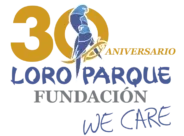Original source:
https://www.loroparque.com/press/en/component/k2/item/download/24_37fb7d0fb64ed5e2e81130a8f7335d60
Dear Dr. Frankhauser,
Apparently you consider ending the 45 years of cooperation with Loro Parque, one of the world’s most commendable zoos regarding both animal welfare and conservation of endangered species: Thomas Cook intends, from next summer, to “no longer sell any animal attractions that keep orcas in captivity”. You claim that you “have actively engaged with a range of animal welfare specialists in the last 18 months, and taken account of the scientific evidence they have provided.”
I am writing to you because 1) I am concerned whether you are indeed basing your decision on scientific facts and real animal welfare interests rather than being influenced by ideological lobbyist groups; and 2) because you do not seem to consider the very negative implications it would trigger.
If you have taken into account scientific evidence that justifies that orcas in particular are not to be kept by zoos, then please reveal the sources and share them publicly. Also make public who the animal welfare specialists whose “expertise” you have relied on were. Otherwise there is a bitter aftertaste that your sources and “experts” may not be objective/trustworthy. Given that over the past years emotional campaigns about orcas in captivity have been pushed by certain unscientific and certainly not objective lobbyists rather than real scientists I find it rather surprising that you are not being transparent about this in the first place.
Personally, I have dedicated my professional life to science and research on animal intelligence. The main motivation behind my work/career has always been to improve respect for animals by providing scientific facts about them, their cognitive abilities and their needs. As a scientist I know that animal welfare as well as conservation of endangered species can only be achieved if we rely on science. Therefore, I urge you to reevaluate whether the decision-making process behind Thomas Cook’s recent considerations has been based on a sufficiently objective and well-informed overall picture building on reliable scientific information. As a Swiss national and head of a very large company in the tourism industry it should be a matter of honour to be bound by truth and also to take criticism and reconsider wrong decisions.
For the past years my research team has been cooperating with the Loro Parque Foundation, which has granted us access to their parrot collection for comparative research about their cognitive abilities. I therefore know Loro Parque well and can testify that it stands out both in terms of their animal care standards as well as their efforts for wildlife conservation in an international comparison. As Thomas Cook has cooperated with Loro Parque for more than 45 years you must know equally well that the Loro Parque with its associated foundation strives to be a prime example of a “Modern Zoo”, which serves as a platform for education, science and biodiversity conservation and that few zoos have had so much positive impact on conservation of endangered species.
By dumping Loro Parque you are setting a signal in a very wrong direction questioning the legitimacy of zoos overall and neglecting their growing importance for education, awareness building and the protection of nature. After profiting yourselves for 45 years from the guests’ enthusiasm for nature, you will prevent so many people from a potentially life changing encounter with animals as ambassadors for their wild conspecifics and for their natural habitats.
So please investigate internally whether you have got the priorities of your animal welfare policy right in terms of positive impact for wildlife conservation. You will find that by cooperating with Loro Parque you support the right side, a side which enthuses its guests for wild animals and nature and fosters their’ willingness to stand up and act for the protection of nature and biodiversity.
Yours sincerely,
Dr. Auguste von Bayern
Max Planck Institute for Ornithology










